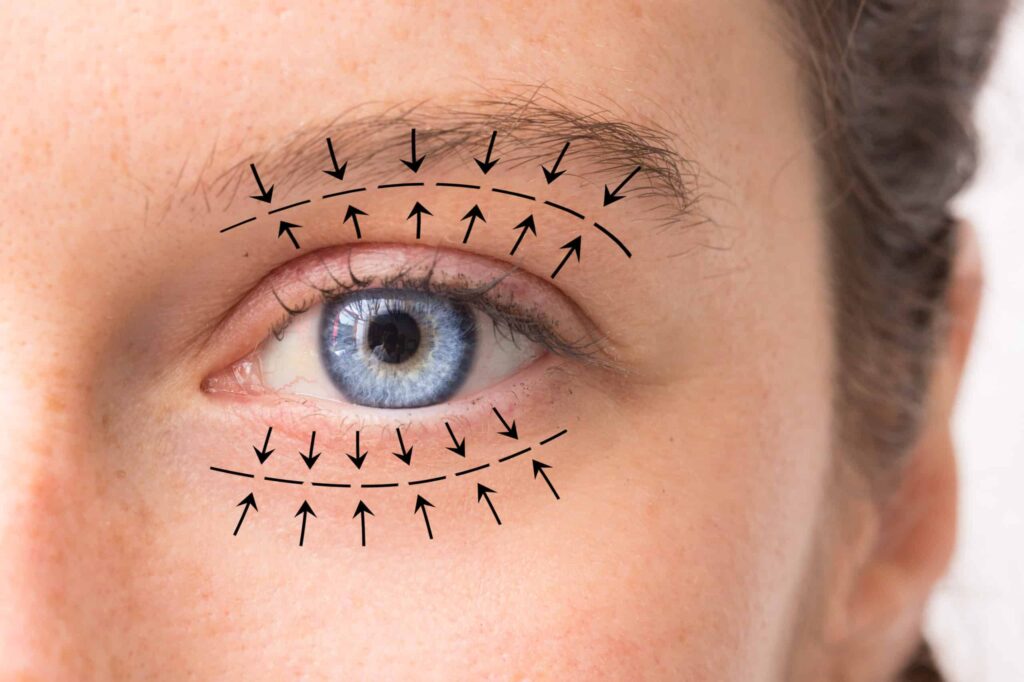If you plan to get oculoplastic surgery, you must know about some complications and how the surgery is done. When deciding whether to have plastic surgery, you must consider the dangers and potential problems of eyelid surgery against the potential benefits of reaching your goals. You should have an idea of all the things which will result in chaining some of your facial features.
You will be required to sign consent paperwork to show that you know all the risks and potential consequences of the treatment. Before knowing about the risks, you must know thoroughly about oculoplastic surgery so that you can understand the risks and complications accordingly. Many people need to do thorough research regarding the surgery, and in the future, they tend to feel some of the problems which make it harder for them to have a successful surgery.
What Exactly Is Oculoplastic Surgery?

Oculofacial or ophthalmic plastic and oculoplastic surgery is a specialist branch of ophthalmology that focuses on the condition of the eyelids, orbit, tear ducts, and other tissues around the eye. Surgery related to your eyes is considered oculoplastic surgery. It requires you to take crucial steps before going for the treatment. From eyelid tumors and orbital fractures to drooping eyelids and blocked tear ducts, oculoplastic surgery addresses various diseases and problems.
Most people go for a particular disease treatment, and many for some facial advancement and change. In layman’s terms, it’s known as “eye plastic surgery.” Some of these procedures are purely cosmetic to improve the appearance of a specific feature, while others have a secondary benefit to the patient’s health or comfort. You need to rely on a reliable source to assure you reliability and ease the whole process. If you are searching for a source or surgeon, you can check out an oculoplastic surgeon in London and learn more about it.
1. Light Sensitivity
You may experience extreme light sensitivity for a few days after surgery. Also, whenever you go for any ocular surgery, you must ensure that you are not exposed to harsh light or too bright places as it might make it hard for your eye to work. As a result, it is best to avoid direct sunlight or bright light. If bleeding occurs, notify the surgeon.
Your skin becomes sensitive in the starting stage. To ensure that your surgery is successful, you need to be extra cautious and ensure that medications and protection creams or solutions are provided; you must use them, particularly on time. This helps your eyes to work in the light; otherwise, bleeding can complicate the whole process.
2. Mild Pain And Swelling
You will not immediately start seeing the results; there will be minor swelling and scarring as the area around the eyes is pretty sensitive and might react towards the medication and the equipment used. You will notice scarring and swelling, which is normal, and usually, in blepharoplasty cases, you might witness the scarring.
After surgery, you will experience minor pain and discomfort in the eyes and surrounding areas immediately. Pain is nominal, and if you have high pain tolerance, you can easily tolerate it, and after some time, you will see the expected results. You may also experience numbness or swelling around your eyes. Also, after the surgery, try to avoid going out as there will be pain and swelling, and if the eyes are exposed to outside light or any harsh lighting, they might start paining severely. This is why patients are recommended to stay indoors, especially the weak. After two weeks, if there is still pain and swelling, you must contact your surgeon immediately.
3. Scar Discoloration

Eyelid skin heals faster than almost any other skin on the body; however, external eyelid wounds must be carefully placed and closed to avoid asymmetry and scarring. Incision lines may appear hypertrophied on occasion, especially in keloid-forming patients.
Scar discoloration is not a common phenomenon, but if you witness any discoloration after some time of the surgery, you should contact the surgeon. Different patients face different complications, and the patient does not commonly face scar discoloration, but this is also one of the drawbacks or risks linked with oculoplastic surgery.
4. Overcorrection Of The Upper Eyelids
Excess skin and fat removal, as well as scarring and adhesions, cause aesthetic and functional abnormalities when you try to remove a lot of fat near the eye area, which causes functional problems because your skin undergoes severe changes that might not suit your skin.
Eyelid trauma and dermatological conditions causing tight skin are all risk factors for overcorrection. When you think of totally changing your skin type and going for overcorrection in the future, you will face functional problems. Precision and measurement are essential for avoiding overcorrection. You can go for mild changes but not going for overcorrection.
5. Vision Problems
Problems with vision are only temporary. If you have an eyesight problem, you might face a little problem in the vision in the first week; after that, you will see that your vision starts getting better.
Some people experience blurry vision, while others experience double vision. This is a common risk that comes up with the surgery, but it quickly gets resolved after some time. This usually only lasts a few days after surgery while the eyes adjust and heal.
6. Minor Soreness

For at least 10-15 days, after a wound has healed, you may experience soreness in your eyes and surrounding areas. This is due to the operation, solution, and other medications, but you don’t have to worry a lot about it. It will help if you apply cold compresses or dressings to your eyes as directed by your doctor.
The doctor will guide you about the complications and how you can easily tackle them. If the pain persists, over-the-counter pain relievers can be used—general risks of surgery, such as a blood clot or an adverse reaction to anesthesia.
Bottom Line
The complications are not something that took place in every case. It depends upon case t case. All these complications and risks are essential for you to know so that you can decide upon your surgery and how you must go for it. Consider this article as your guide and go to a reliable surgeon.
